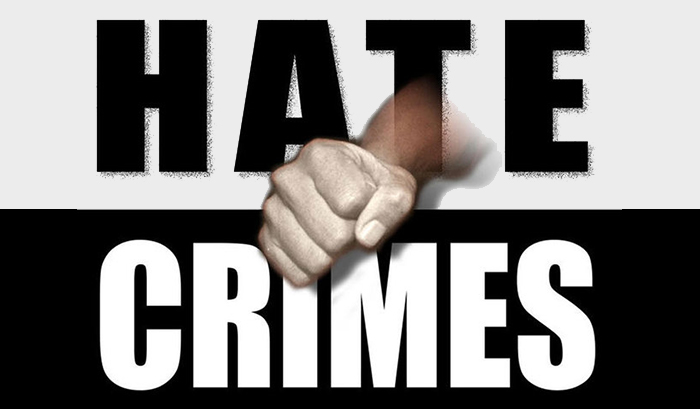[img]1|left|||no_popup[/img]
My timing was excellent late yesterday afternoon. After driving the several miles over to Beverly/Fairfax to fulfill a weekly errand, I found a rare parking space on Stanley Avenue. The sun was fading as I walked down the paved alley behind venerable old Etz Jacob, my favorite synagogue in the best known Jewish neighborhood in Los Angeles.
In the doorway stood a modest-sized gentleman. Attired in his everyday black suit, a well-worn black fedora and a vaguely wrinkled white shirt that was tieless, his darting eyes nervously scanned the breadth of the driveway.
I didn’t recognize him, and I still don’t know his name. But any Jew could have told you what was monopolizing his mind. He was performing what has been a daily ritual for the almost 25 years I have known the rav of the synagogue, Rabbi Reuven Huttler.
The Man in the Doorway had melted into handwringing wreckage while trying to find the requisite 10th adult male, required, according to Jewish Law, to complete the minyan for afternoon prayers.
He was pleased but not particularly thrilled when I walked in because I was not nearly the answer to his prayers. I was merely the sixth man. Four to go.
Even Jews who have been estranged from their heritage all of their lives know that Judaism runs by a clock as well as a calendar. Jewish men are obligated to pray three times a day, and there is a narrow time window when the few-minutes services may be said, preferably within the confines of a minyan, the faster to propel the prayers to their heavenly destination.
You Think It’s Easy?
You might think that if you were standing on the corner of densely peopled Beverly Boulevard and Stanley at 5:50 on a pleasant weekday afternoon in quest of Jewish men willing to commit to participating in about 25 brisk minutes of davening, you would have to shoo them away. Surely the seeker would be inundated.
The search yielded one gentleman, in a baseball cap. The Man in the Doorway paced so much, back and forth across the room, in and out of the large, stately, aging and mostly darkened synagogue, that he was making me anxious.
Periodically, roughly once or twice a minute, he reported his progress, or frustration, to Rabbi Huttler, an extremely kind holy man in his 70s who was holding court with old friends as is his habit in the small, square, dimly lighted room before minyan begins.
Between his non-stop fundraising and twice-daily pursuit of 10 men to form a minyan, Rabbi Huttler probably is the hardest working rabbi in Los Angeles. To clarify: We are not talking about Obama-sized fundraising but hand-to-mouth fundraising, barely enough to cover the fundamental daily bills, utilities here at the synagogue and also down the street at the day school he started in the early ‘90s, mainly to accommodate the children of poor families who flooded the Fairfax neighborhood when the Soviet Union collapsed. Tition: free.
Fundraising enough money to get the day school teachers paid, more or less timely, is nervewracking enough to give a tick to a dead man. About 6 feet tall, spare, moonfaced and always collegial, like many pious Jews, his black fedora is his constant companion.
High Noon Occurs Every Day
For the quarter-century I have known him, Rabbi Huttler’s shoulders have preceded him when he walks. Some would describe it as a slouch. From three blocks distant, you could identify him by his gait. Most of his adult life has been lovingly invested in Etz Jacob, which he nurtures by the hour as if it were a beloved relative unable to care for himself.
The Man in the Doorway says if we can get to eight men, two others have guaranteed they will join us. No. 8 was elusive. As if this were Gary Cooper in High Noon — the drama was just as thick — the timepiece on the northern wall ticked mercilessly. Alas, as the clock cracked 6, not only the Eighth but the Ninth and 10th men, simultaneously, almost magically, drifted in.
Randomly, relief was sighed. For the first time in 15 shaky minutes, The Man in the Doorway smiled. Briefly.
As he hurriedly began leading our tiny group in a brace of familiar, traditional Hebrew prayers, I glanced up.
A Room with a View
From the minimally lighted, enormously calming setting where I had prayed a couple hundred times before, we could have been in ancestral Poland a hundred years ago.
Perhaps 15 feet by 20, six rows of unremarkable bench-style seats, divided in half, were evenly arranged. The Man in the Doorway, his back to us, stood at a lectern in front, facing east, toward Jerusalem, as prescribed by Jewish Law.
This may have been the oldest minyan in Los Angeles yesterday, as it is on many days, average age 75 at least.
The various utilitarian furnishings around the room, known as a bais medrash, and the 10 men probably both came into the world at the same time.
Adjacent to our leader was a tall, plain, open-air closet offering rows of decades-old prayerbooks in various conditions. They were kind of arrayed in sort-of stacks, sharing slightly dusty shelves with numerous volumes of deeper holy books.
Rabbi Huttler always positions himself near the north wall at an unadorned rectangular table that is surrounded by several chairs, ideal for daily learning, prying, probing, exploring Judaism’s millions of crucial nuances applicable to daily life.
As long has been the custom, Afternoon Prayers seamlessly segued into Evening Prayers because if there had been this much difficulty collecting a quorum for the early minyan, there was no chance we could find 10 later. For some of us, those 25 minutes provide a stitching that holds together the most fragile portions of our daily lives.







